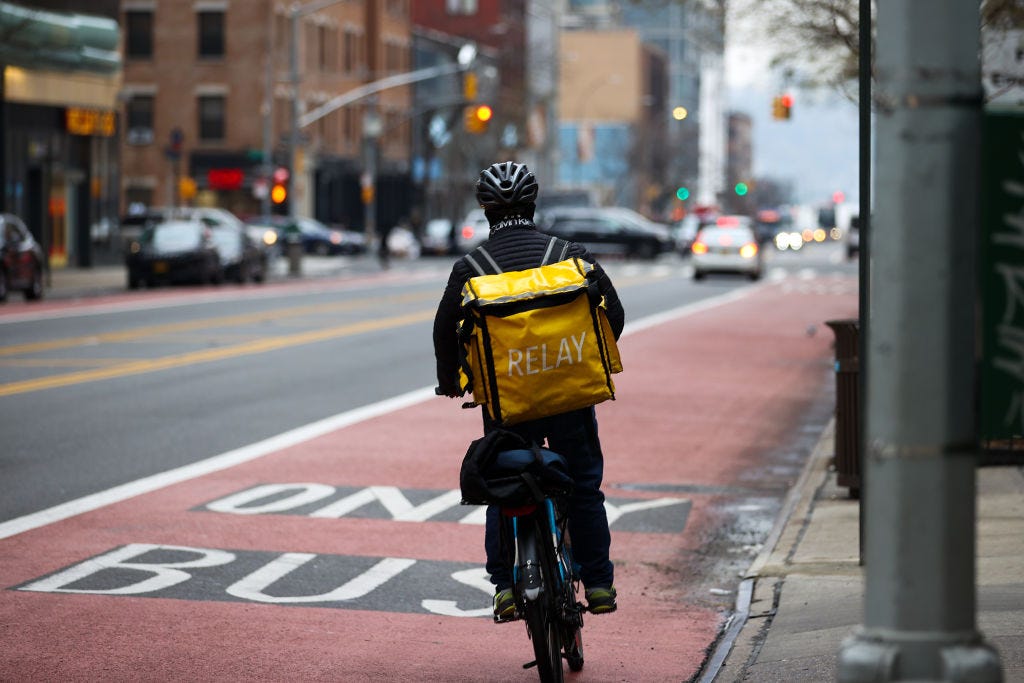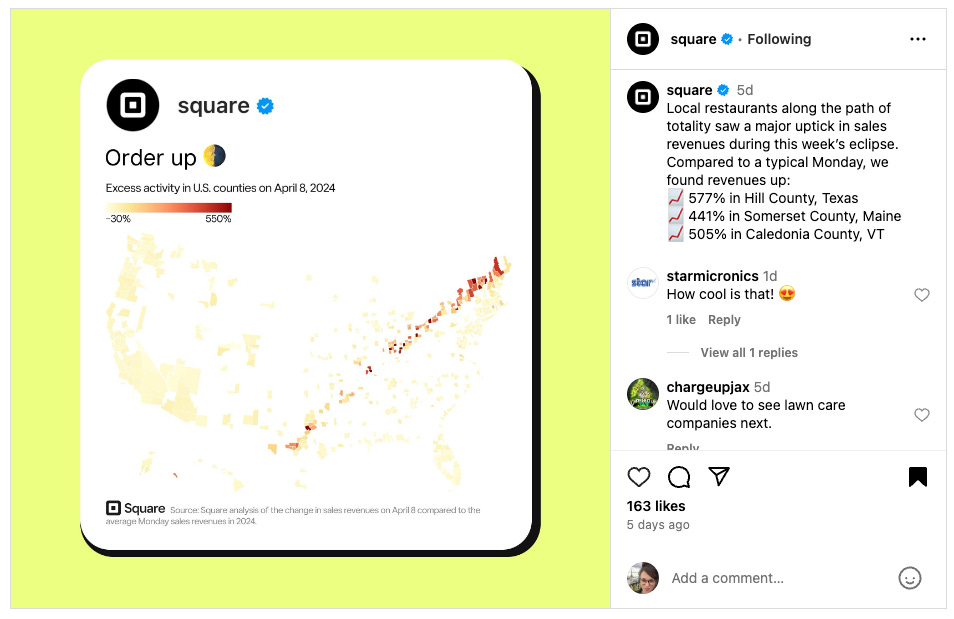Wonder acquires Relay
Delivery is a local business
It’s fun to break news, even if it happens when I’m away from my desk. Inside a recent Eater piece about Wonder, the New York-based takeout and delivery company backed by $1.5 billion in investment, I snuck in a scoop: Wonder recently acquired Relay, a New York-based delivery company. Terms of the deal were not disclosed.
A rep for Wonder confirmed the acquisition, offering a statement:
After a year-long partnership, Wonder and Relay have agreed that Relay will become part of the Wonder team, with plans to transition its tech infrastructure to Wonder. There are no anticipated changes to Relay’s courier network, operations, or restaurant partners. As Wonder continues to grow in the Northeast, we’re excited for this partnership to further improve our customer and courier experience, with a focus on enhanced delivery speed, accuracy and economics.
In an effort to enforce some sort of personal life boundary as a freelance journalist (LOL okay), I didn’t make a fuss about the news or about breaking it while I was off last week. But I’m back at my desk, so here we are:
Guess what? Wonder acquired Relay and that says a lot about the future of food delivery in New York and beyond.
“I think it's important to note that this acquisition was not opportunistic, but rather from a position of strength for both companies,” Alex Blum, Relay’s founder and CEO told me today over email. “It became evident after a year of successfully working together, that 1+1 = 3. Relay's focus on fulfillment efficiency was a great match with Wonder's focus on delivering an extraordinary culinary experience to customers. The integration has been seamless and we're now hyper-focused on execution as we grow together as one company.”
Relay’s business model makes it an outlier in New York.
The company vets and hires workers at an hourly rate to deliver food from restaurants. Restaurants take orders however they want, including from third-party services like DoorDash, then use Relay’s couriers to handle delivery logistics.
It’s an important distinction. New York City has become ground zero for scuffles between app-based delivery companies, restaurants, and couriers. When the city passed a new law mandating minimum pay for delivery workers, Relay joined its nationwide third-party delivery peers to rally against it, filing a lawsuit last summer that succeeded in delaying, but not derailing, the law’s implementation.
Eventually, Relay managed an exemption to the wage law because of its business model, working directly with restaurants and paying couriers hourly. But in December month, despite lawsuits and appeals, the big apps were made to follow the law, throwing delivery in New York into a bit of chaos. In a March blog post, DoorDash said that the new law cost local merchants over $3 million in revenue and 200,000 orders over a two-week period. (One Seattle delivery worker, speaking about similar regulations in their city, told Vox that the apps’ response amounts to a “corporate tantrum.”)
Wonder’s business relies on reliable delivery.
I finally tried Wonder during a visit to New York last week. Honestly, after talking to chef JJ Johnson for the Eater piece, I couldn’t shake the idea of a lobster roll. I added some Chai Pani, since I’ve never been to its hometown of Asheville, N.C., and a Cobb salad that was just okay, but only because it came covered in cheddar cheese instead of my preferred blue. (This was user, not restaurant, error.)
Unsurprisingly, it was great. The lobster roll held up, the samosas and chaat were hot and crunchy, the salad was fresh and generally inoffensive. But is this because Wonder makes great food, or because I picked it up from a location approximately two blocks from where I was staying?
It’s a trick question, because both things are true. Wonder relies on tight delivery radiuses to maintain food quality, between six to eight minutes away in the city and 10 to 12 in the suburbs. Buying Relay gives Wonder more control over delivery operations. And if I’ve learned anything about Wonder’s priorities, it’s that it wants to exert maximum control over the food it prepares and serves.
Expedite, live:
Upcoming event: Yelp's Local Business Summit
Registration is open for Yelp’s Local Business Summit on May 8, where I’ll be hosting a chat with Los Angeles-based chef and entrepreneur Roy Choi. Attendees will hear inspiring stories, get business advice, and receive actionable takeaways from incredible leaders across different industries during this virtual event. Join us, it’s free!
Look at this awesome graphic
According to data from Square, local restaurants along the path of totality during the early April solar eclipse saw a major uptick in sales.
It’s been a week! What else is happening?
TWO new editions of my podcast, The Simmer, are out on Spotify. First, a conversation with Nimbus founder and CEO Camilla Opperman, who is always a fantastic interview. Then a chat with Joe Unger, who’s had a fascinating career in big-name restaurants *and* one high-profile restaurant tech startup (I had many questions.) More coming soon (and more distribution methods, we promise. Thank you for your patience.) — The Simmer on Spotify
Toast launched a new product for enterprise (read: chain) restaurants to give them even more control, data, and insights. Always interesting to watch as a major restaurant tech company diversifies from its indie beginnings. — release
Remember Flyfish Club? The world’s first NFT restaurant is selling some more… traditional memberships a few years in. For $5,000 you can enjoy many of the same privileges that people who paid an order of magnitude more for a membership token. — Flyfish Club
Who needs a cashier when you have contract labor and a Zoom account? Not this NYC chicken spot! — 404 media
They’re still breathing, but barely: The New York Times reminds us that ghost kitchens are, in fact, ghosting. — New York Times





